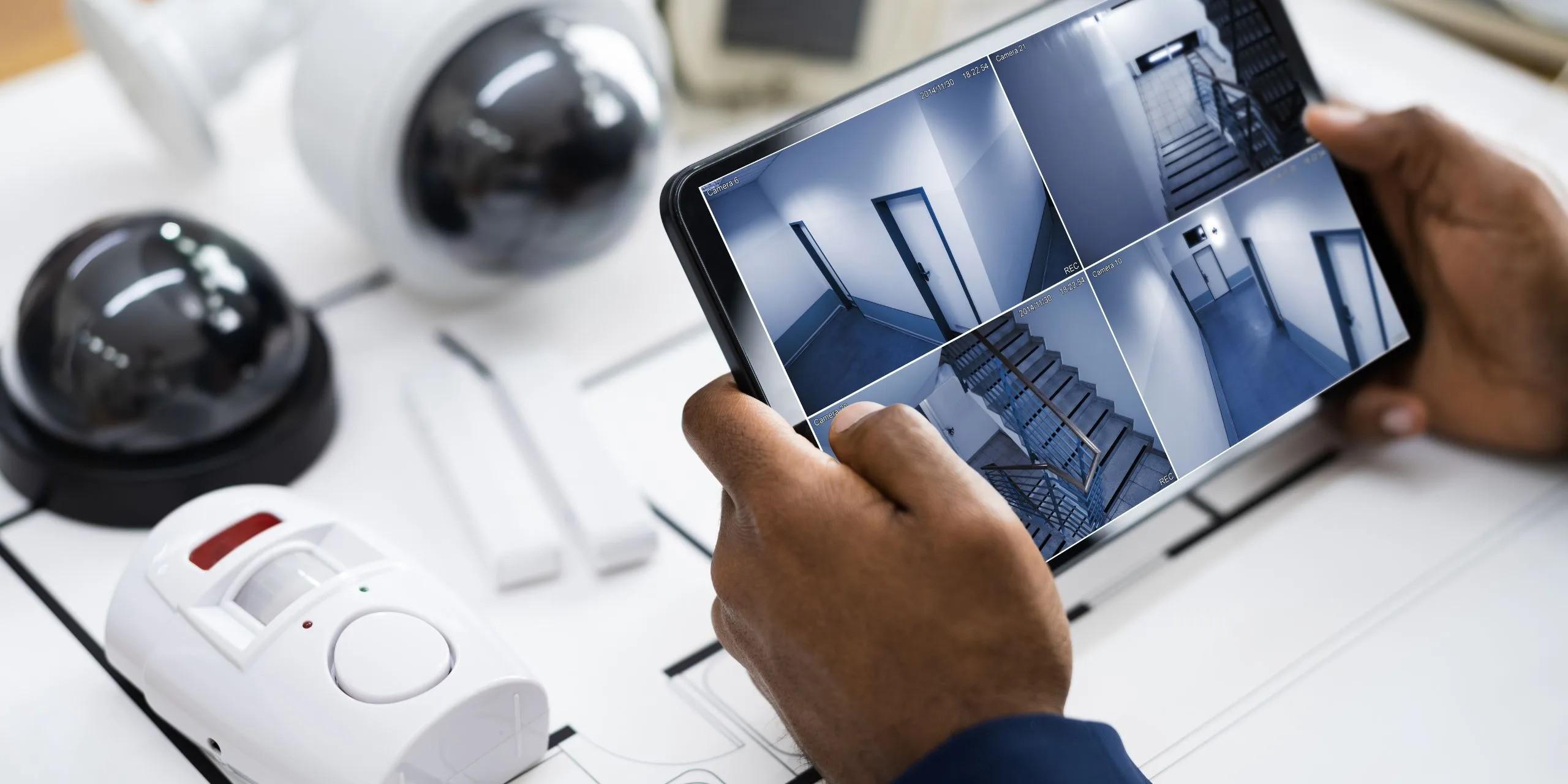As businesses continue adapting to modern work environments and evolving threats, the need for robust security systems has never been more critical. With remote work setups, technology integration, and rising crime rates across commercial areas, businesses are re-evaluating how they protect their assets and people.
Today’s business alarm systems are far more advanced than basic burglar alarms. They combine surveillance, intrusion detection, and Physical Access Control Systems to create a unified defense. But how much does all of this cost in 2025? The answer depends on many factors, from business size to the features required.
Let’s explore the components, pricing, and value of investing in a business alarm system in 2025.
What Does a Business Alarm System Include?
A typical business alarm system today includes:
- Intrusion detection: Sensors on doors, windows, and walls
- CCTV surveillance cameras
- 24/7 monitoring services
- Mobile app access and real-time alerts
- Physical Access Control Systems such as keycards, fobs, or biometric scanners
- Smart integrations: AI alerts, cloud storage, or video analytics
Advanced systems may also include temperature sensors, motion-activated lights, and license plate recognition. These features ensure full-site awareness and fast response to any suspicious activity.
Factors That Influence Alarm System Costs
Business Size and Layout
The larger and more complex your facility, the more sensors, cameras, and access control points you'll need. A small retail store might require 4–6 cameras and a simple access system, while a warehouse or multi-level office building could need dozens of devices.
Level of Monitoring
Basic systems with local alerts are cheaper, but most businesses today opt for professional monitoring. This service alerts emergency responders when alarms are triggered and offers 24/7 oversight.
Monitoring fees typically range between $30 to $100 per month, depending on the provider and services included.
Installation Type
You can choose between:
- DIY systems: Lower upfront cost, easier for small businesses
- Professional installation: More reliable and scalable, essential for medium to large businesses
Professional installation usually adds $500 to $2,000+, based on system size.
Equipment Quality and Features
- Cameras: Higher-resolution and night-vision capable cameras are more expensive
- Physical Access Control Systems: Systems using keycards cost less than those using biometrics or mobile credentials
- Cloud services and AI analytics: Add convenience and insight, but increase cost
Expect to pay more for smart features and long-term data storage.
Average Business Alarm System Pricing in 2025
Here’s a general breakdown of average costs based on business size:
| Business Size | Estimated Cost (Equipment + Install) | Monthly Monitoring |
| Small (Retail/Café) | $1,000 – $2,500 | $30 – $60 |
| Medium (Office/Warehouse) | $2,500 – $7,500 | $50 – $90 |
| Large/Enterprise | $8,000 – $20,000+ | $80 – $150+ |
These estimates include basic intrusion detection, surveillance cameras, and Physical Access Control Systems.
Physical Access Control Systems: A Worthwhile Investment
Physical Access Control Systems go beyond simple locks. They give business owners full control over who enters and exits restricted areas. These systems allow you to:
- Set permissions by employee role
- Track entry logs in real time
- Remotely revoke access if needed
In 2025, cloud-based access control is growing in popularity. These systems sync with mobile apps and integrate seamlessly with alarm and video surveillance systems.
Basic systems using keypads or cards may cost around $1,500 to $3,000, while cloud and biometric solutions can range from $4,000 to $10,000+ depending on features and scale.
Comparing Alarm System Costs by Industry
Retail Stores
Retailers typically need strong theft deterrence with visible surveillance and real-time alerts. Most spend around $2,000 to $5,000 on full setups, plus ongoing monitoring.
Office Spaces
Corporate offices invest more in Physical Access Control Systems to secure sensitive data areas and HR records. Their systems often range between $5,000 and $10,000.
Warehouses and Industrial
Larger facilities require perimeter cameras, motion sensors, and multi-entry access control. These businesses often spend $10,000 or more on comprehensive systems.
Long-Term Savings and Benefits
While the upfront cost may seem high, a business alarm system provides:
- Loss prevention from theft or vandalism
- Lower insurance premiums
- Employee safety and confidence
- Improved incident response
- Compliance with safety and privacy regulations
In particular, Physical Access Control Systems reduce internal theft and data breaches by restricting who can access sensitive locations.
Choosing the Right Provider
Look for providers who offer:
- Experience in your industry
- Scalable solutions
- 24/7 support and monitoring
- Mobile app features
- Transparent pricing with no hidden fees
Always request a site survey to get a tailored quote. Don’t compromise on service quality or support just to save a few hundred dollars upfront.
Conclusion
In 2025, business alarm systems are smarter, more secure, and more essential than ever. Costs vary depending on your needs, but investing in a complete solution with surveillance, intrusion detection, and Physical Access Control Systems delivers strong long-term value.
Whether you're a small business owner or manage a large facility, a professionally installed system can protect your assets, staff, and reputation. And if you're looking to get started, consider services like Security Camera Installation Oakville to explore options designed for your local business.
FAQs
How much does it cost to install a security camera system for a small business?
Typically between $1,000 and $2,500, depending on camera quality and number of devices.
Do I need monitoring for my alarm system?
Monitoring isn't required but is highly recommended for 24/7 protection and emergency response.
What are the benefits of Physical Access Control Systems?
They improve security by controlling and tracking entry to sensitive areas, helping reduce internal risks.
Can I use my smartphone to control my business alarm system?
Yes, most modern systems offer mobile apps for remote access, alerts, and real-time video feeds.
Is professional installation better than DIY?
For larger businesses or complex systems, professional installation ensures better reliability, integration, and support.

